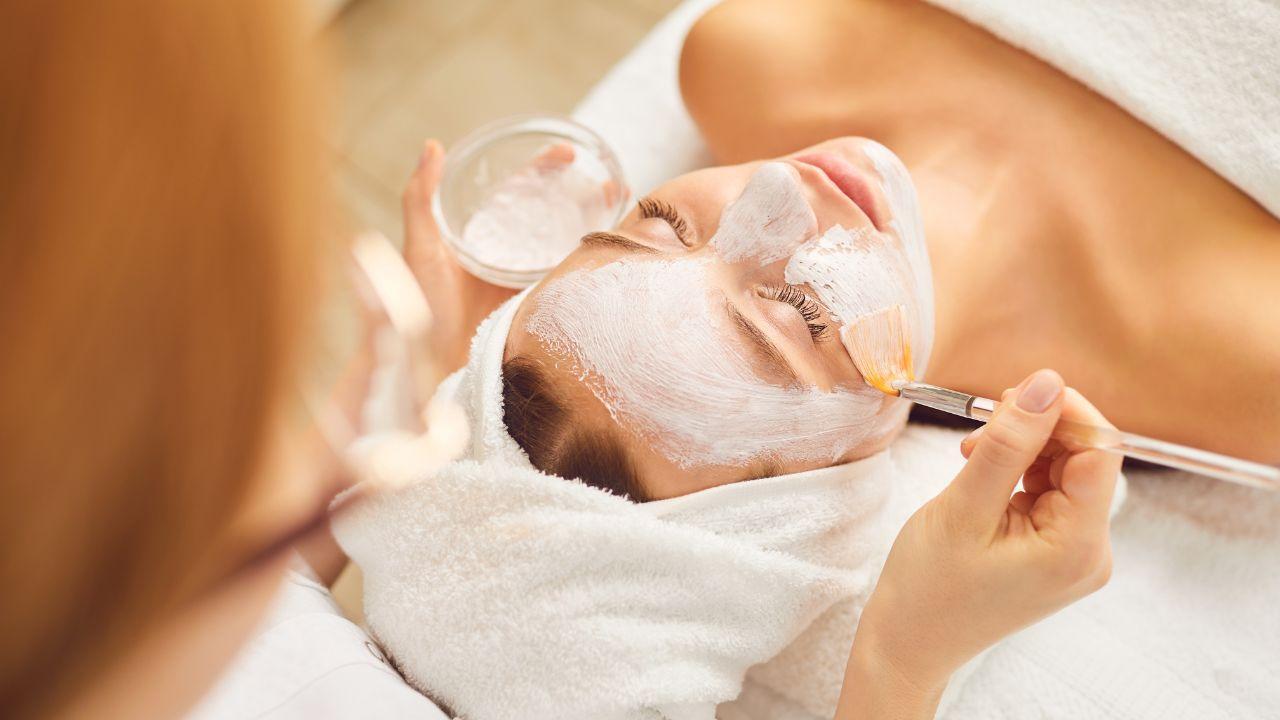
Post by : Saif Nasser
Winter months often bring higher concentrations of airborne pollutants. Particulate matter, soot and chemical gases in the atmosphere do more than reduce visibility—they directly affect the skin. As the Air Quality Index (AQI) climbs, the skin is exposed to particles that can obstruct pores, sap radiance and accelerate visible ageing. However, a deliberate care routine can significantly reduce these effects and preserve skin health.
Dermatologist Dr. Rinky Kapoor notes that "long-term exposure to polluted air contributes to inflammation, accelerated ageing and loss of skin vitality. Defence must include both topical measures and internal support." She recommends a structured daily regimen centred on removal of pollutants, reinforcement of the skin barrier, hydration and protection.
1. Begin with Thorough but Gentle Cleansing
Removing environmental residue is the foundational step. Microscopic particles and oily deposits accumulate on the face and, if left, combine with sebum to clog follicles and trigger blemishes.
Opt for a mild, sulphate-free cleanser that lifts grime without stripping natural oils. Ingredients such as green tea, charcoal or salicylic acid are useful for eliminating impurities. Consider a two-step approach: an oil-based cleanser to dissolve surface makeup and grime, followed by a water-based cleanser to clear remaining pollutants.
2. Exfoliate Strategically Once or Twice Weekly
Even after cleansing, residue can persist on the skin surface. Periodic exfoliation removes dead cells and helps renew skin turnover. Use a gentle scrub or a chemical exfoliant containing AHA or BHA once or twice a week. Avoid abrasive scrubs with large particles which can damage the skin barrier and increase sensitivity to environmental stressors.
3. Restore the Barrier with Toners and Essences
Airborne contaminants can compromise the skin’s protective layer, causing dryness and irritation. After washing, apply a hydrating toner with ingredients such as vitamin E, niacinamide or rose water to rebalance pH and soothe the skin. Follow with a lightweight essence or serum including ceramides, peptides or hyaluronic acid to reinforce moisture retention and barrier repair.
4. Add an Antioxidant Serum for Daytime Defence
Pollution increases free-radical activity that contributes to pigmentation and collagen breakdown. A vitamin C serum applied each morning before moisturiser can neutralise free radicals, brighten complexion and reduce dark spots. Formulations with green tea, resveratrol or ferulic acid offer complementary antioxidant support.
5. Maintain Hydration with the Right Moisturiser
Smog and low humidity steal moisture, leaving skin rough and flaky. A suitable moisturiser forms a protective seal and helps prevent pollutant penetration.
Choose a gel-based product if you have oil-prone skin, and a richer cream for dry skin types. Look for emollients such as squalane, shea butter or aloe vera to nourish and strengthen the surface throughout the day.
6. Use Broad-Spectrum Sunscreen Daily
Cloud cover and haze do not eliminate ultraviolet radiation. UV exposure can compound pollution-related damage, accelerating ageing and increasing pigmentation risk.
Apply a broad-spectrum sunscreen of at least SPF 30 each morning, even when indoors, and reapply every 3–4 hours if you are outdoors. Physical filters like zinc oxide or titanium dioxide, combined with antioxidant ingredients, provide robust protection.
7. Support Nighttime Repair
Night is when the skin undertakes restoration. After cleansing and toning, use a nourishing night cream or sleeping mask containing ingredients such as vitamin E, retinol or niacinamide to aid regeneration.
Once or twice weekly, an overnight detox mask featuring charcoal, clay or seaweed extract can draw out deeper impurities accumulated during the day and assist recovery.
8. Nourish Skin from Within
Topical care is most effective when supported by diet and hydration. Dr. Kapoor advocates a diet rich in antioxidants: berries, citrus fruits, leafy greens and nuts help counter oxidative stress.
Aim for 8–10 glasses of water daily to maintain systemic hydration and support toxin elimination. Internal wellbeing often manifests as improved skin tone and resilience.
Small Daily Habits That Help
Reduce how often you touch your face when outside.
Use a freshly laundered face towel each day.
Consider wearing a brimmed hat or scarf to limit direct exposure to dust.
If feasible, run an indoor air purifier to lower suspended particles at home.
Clean makeup applicators and sponges on a regular schedule.
Final Thoughts
Urban pollution and smog are persistent environmental challenges, but their impact on skin can be mitigated. A methodical routine combining pollutant removal, barrier reinforcement, antioxidant defence and sensible lifestyle choices will reduce harm and help maintain healthier skin over time.










Mattel Revives Masters of the Universe Action Figures Ahead of Film Launch
Mattel is reintroducing Masters of the Universe figures in line with its upcoming film, tapping into

China Executes 11 Members of Criminal Clan Linked to Myanmar Scam
China has executed 11 criminals associated with the Ming family, known for major scams and human tra

US Issues Alarm to Iran as Military Forces Deploy in Gulf Region
With a significant military presence in the Gulf, Trump urges Iran to negotiate a nuclear deal or fa

Copper Prices Reach Unprecedented Highs Amid Geopolitical Turmoil
Copper prices soar to all-time highs as geopolitical tensions and a weakening dollar boost investor

New Zealand Secures First Win Against India, Triumph by 50 Runs
New Zealand won the 4th T20I against India by 50 runs in Vizag. Despite Dube's impressive 65, India